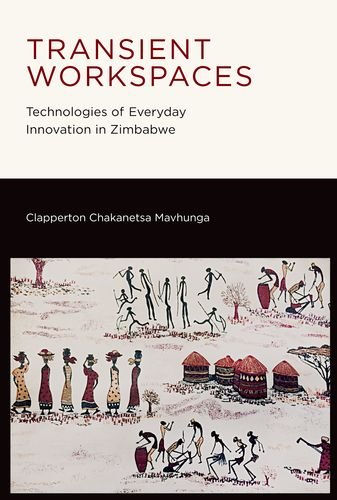

Most ebook files are in PDF format, so you can easily read them using various software such as Foxit Reader or directly on the Google Chrome browser.
Some ebook files are released by publishers in other formats such as .awz, .mobi, .epub, .fb2, etc. You may need to install specific software to read these formats on mobile/PC, such as Calibre.
Please read the tutorial at this link. https://ebooknice.com/page/post?id=faq
We offer FREE conversion to the popular formats you request; however, this may take some time. Therefore, right after payment, please email us, and we will try to provide the service as quickly as possible.
For some exceptional file formats or broken links (if any), please refrain from opening any disputes. Instead, email us first, and we will try to assist within a maximum of 6 hours.
EbookNice Team

Status:
Available5.0
22 reviewsIn this book, Clapperton Mavhunga views technology in Africa from an African perspective. Technology in his account is not something always brought in from outside, but is also something that ordinary people understand, make, and practice through their everyday innovations or creativities -- including things that few would even consider technological. Technology does not always originate in the laboratory in a Western-style building but also in the society in the forest, in the crop field, and in other places where knowledge is made and turned into practical outcomes. African creativities are found in African mobilities. Mavhunga shows the movement of people as not merely conveyances across space but transient workspaces. Taking indigenous hunting in Zimbabwe as one example, he explores African philosophies of mobilities as spiritually guided and of the forest as a sacred space. Viewing the hunt as guided mobility, Mavhunga considers interesting questions of what constitutes technology under regimes of spirituality. He describes how African hunters extended their knowledge traditions to domesticate the gun, how European colonizers, with no remedy of their own, turned to indigenous hunters for help in combating the deadly tsetse fly, and examines how wildlife conservation regimes have criminalized African hunting rather than enlisting hunters (and their knowledge) as allies in wildlife sustainability. The hunt, Mavhunga writes, is one of many criminalized knowledges and practices to which African people turn in times of economic or political crisis. He argues that these practices need to be decriminalized and examined as technologies of everyday innovation with a view toward constructive engagement, innovating with Africans rather than for them.